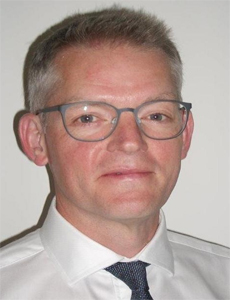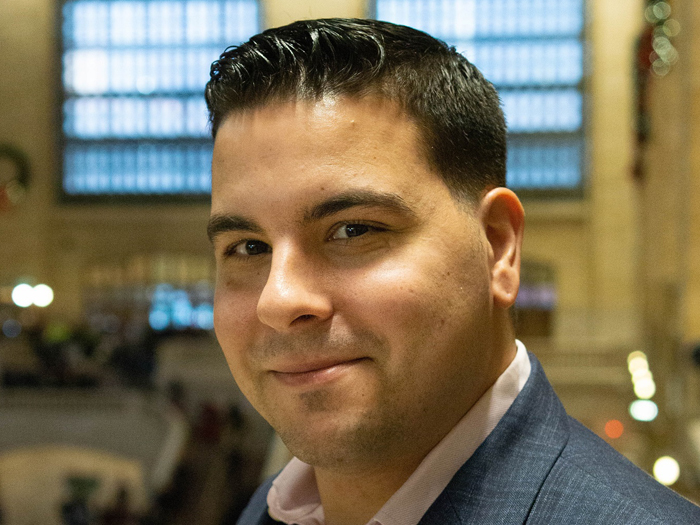9 Questions for BHSI’s Andrew Walker, Head of Claims for UK & Europe

Wrapped in a global pandemic, coupled with an economic downturn, and exposed to natural and manmade catastrophe, those in the claims space are keeping ever vigilant of what is yet to come.
For Andrew Walker, head of claims for the UK and Europe for Berkshire Hathaway Specialty Insurance, that means keeping a close eye on today’s biggest challenges facing his customers.
“It’s really important, now more than ever, that we’re staying close to our customers and to our brokers,” Walker said.
Walker’s claims philosophy is rooted in open communication with customers and broker partners alike in order to find the best outcomes during even the most tumultuous times.
Walker sat down with Risk & Insurance® to discuss his take on the claims landscape and how best to address today’s risks for a successful tomorrow. Here’s what he had to say:
Risk & Insurance: To get us started, Andrew, could tell us about your insurance journey? What led you into the industry and what does your current role as head of claims for the UK and Europe at BHSI entail?
Andrew Walker: I’ve been working in the business since the 1980s. I got into insurance by answering a few adverts in the paper from various financial services companies.
I was fortunate enough to answer an advert from an insurer in the UK, a company called Municipal Mutual, and I learned a lot with that business in over five years, and then I joined AIG at that point back in the early 1990s. I was with them for 25 years, working my way up from an adjuster through various layers of claims management, getting all sorts of opportunities to investigate more and more complicated and difficult claims.
I joined Berkshire Hathaway Specialty Insurance, BHSI, in 2016, just as it was opening its European footprint, which was just over three years into the lifespan of BHSI overall.
R&I: What is it that gets you excited about your career each day?
AW: My job, since October 2016, has been to build a claims team across Europe to support the business, the underwriting of our property, casualty and financial lines, and then more recently marine books of business. My role has been to make sure that as those books gather momentum, as they start to need a claims offering, that I and the people on the claims team offer the support that’s needed.

Andrew Walker, head of claims, the UK and Europe, Berkshire Hathaway Specialty Insurance
As we get busier now, my job is to make sure we’re getting the right people in with the right expertise in the right places, and for the lines of business to be able to service the claims that are coming in. It’s a really exciting role to be in, especially at Berkshire Hathaway. I have had the opportunity to build something new for BHSI, which is an opportunity that doesn’t come up more than once in a career, really.
Every day since October of 2016, seeing the business grow around me, gaining the opportunity to work with a bigger and bigger group of really, really talented people all across Europe has been a fantastic thing. You get energy from the people around you, and we really have developed a leadership team and a team of underwriters all across Europe that has expertise and knowledge to rival any of our competitors.
R&I: What would you say are the key risks you are looking at in the claims space these days?
AW: We look at risk two ways: technical and operational.
We, like every other insurer, are looking at the exposures that we could have through the current global health care and financial crisis. COVID-19 has been with us now since January. So many of the commercial entities around the world have suffered major impacts as a consequence of COVID and many of those companies are looking to their insurance partners and their insurance towers of cover to give them some sort of financial respite.
That’s something we’re constantly aware of, the claims that we might be getting because of the current health care crisis and also the way in which our policies respond to those claims, making sure that they’re doing what we intended those policy wordings to do and that also the policy wordings themselves are relatively straightforward to understand.
The global economic slowdown consequent on COVID and the financial compromise that so many companies and individuals have suffered, is likely to lead to a significant rise in claims frequency. There is a higher risk of individuals and companies making claims when the financial environment in which they’re working is suffering.
Beyond that, insurers are constantly aware of climate change and the extent to which you can associate the natural disasters that we see every year with a changing climate. That awareness informs many of our underwriting decisions in terms of the type of business we should be looking at and where we should be writing it globally. So, we’re constantly looking at climate change as critical risk likely to continue to influence the industry and the way that we will be affected by claims frequency.
And as for the manmade risks, cyber exposures and the Internet of Things are always high on any risk agenda. Something that I think about as a claims person is how the world is interconnected today in ways that it wasn’t, even five or 10 years ago and the consequence that can have on the types of claims that we’ll see. The risks arising from an increasingly digitized and interconnected world, are increasing exponentially.
R&I: You mentioned operational risk as well. What are some of the trends you have your eyes on in that regard?
AW: Operationally, COVID has changed the way we work. So many insurance personnel used to working in city center markets and office environments, like the London market, have had to transition to working from home. There’s a challenge there of making sure we continue to work as effectively as we can in a remote space.
I also think about the challenge of making sure we’ve got the right kind of representative workforce across our team. We have to make sure we’ve got a talented workforce generating a diversity of opinion. There’s a lot of benefit that you get from having a properly representative and diverse workforce, and we’ve got to keep our sights set on bringing in enough people to insurance and insurance claims to generate a sufficient pool of talent for us to continue to deliver the kind of service that we want to customers.
R&I: Of those, what would you consider to be the most pressing or most likely to have a lasting impact in the long term?
AW: This immediate issue of the health care and economic crisis is going to be massive for us and for many, many industries over the next three or four years, at least, I would think.
Climate change, too, from a personal perspective but also from a business perspective is something that we have to be constantly aware of.
When you’re providing insurance for natural catastrophes, as our business does, it protects customers from the consequences of hurricanes, cyclones, floods all around the world. When you’re providing that as a core element of your business, understanding how weather patterns are changing is paramount.
We can almost guarantee that frequency and severity of these weather-related incidents is going to increase in the years ahead as a consequence of climate change. And so that’s something that will be on our minds for the next 20 to 50 years.
R&I: Social inflation is something we hear a lot about in the U.S. when it comes to claims severity. Have you seen an impact in the UK and Europe from this phenomenon?
We’re a global, multinational insurer; even when we’re writing business in the UK or Europe, our customers can certainly have exposures elsewhere in the world, including in the States. So, it’s important for us to understand social inflation, to be aware of it.
When you think about social inflation, what you immediately think of is U.S. jury-led nuclear verdicts creating this momentum of higher and higher awards, which at the same time, might persuade insurers and defendants in other cases in the States to settle for higher numbers to avoid going to trial, generating this vicious circle of awards going up and up. The structure of the court system in Europe doesn’t really allow that to happen and so we don’t see those same nuclear verdict issues in European-venued claims.
But, we do have inflationary pressures. The costs of and the damages in claims only ever really go one way. You don’t see, over time, the value of claims coming down.
Technology is one reason for that. When you think of the simple car accident these days and compare it to a simple car accident 10 years ago, a light bump used to cost a couple of hundred pounds for repairs. Now, there’s so much technology in the car that a small bump can significantly and intrinsically damage the camera system, the sensors and more, and what was once a simple repair has now become so much more complex and expensive . So technology really has, even in simple claims like that, created this inflationary pressure.
R&I: Are there other areas causing inflationary pressure for claims?
As I mentioned before, we’re now in an economic downturn. Even once we’ve got control of COVID, I believe we’ll see a knock-on effect in various economies around the world for a couple of years at least, and that leads to more people making claims.
The benefit of having really talented and experienced people around me in BHSI is that they’re fully aware that that’s coming down the pike. So, we are writing business right now with our eyes completely open about what the future could hold, making sure that we’re rating business in the right way and that we’re not taken by surprise by claims activity in the future. We’re preparing for all of that now.
R&I: With all of these external factors, not only COVID but also some of the other risk factors that are coming to the fore, how do you make certain that you, your clients and your brokers are working together to address changes as they happen?
It starts with the first conversation you have with the customer, and it’s those conversations and that kind of relationship-building that helps you to understand their risk landscape — the way their risks will change, the way their risks can be impacted by all the environmental pressures. We try to stay as close to customers and brokers as we can and really try to understand their respective businesses.
We’ve worked very hard over the last few years to be as connected to our key broker partners and customers as we can be. We’ve had a real focus on being connected to and understanding our brokers’ and our customers’ needs from our first conversations with them.
The closer the relationship with a customer, the more they will look to you to explain how the policy will work in the event of a claim. So, you can go through hypothetical scenarios with them. You can have conversations that really test out individual elements of the policy just to make sure that they will work and to give comfort to the customer.
You need to have honest and open conversations with customers, as well. It’s really important for an insurer to never over-promise, to be entirely transparent and candid about what the policy can and can’t do.
R&I: Do you have any final thoughts on your role or your approach in claims?
AW: This role has just been a really extraordinary opportunity to get to help build a claims team and a claims offering that will support our growth as a business all across Europe. It’s a unique opportunity that really doesn’t come along more than once in a career.
It has allowed me to do what I think is the right thing in claims, which is to deal with claims quickly and fairly and accurately and to deliver on a clear policy promise in every claim that we get. I’m in the perfect place, because that’s what the business expects of me and that matches the values of any professional insurer. &










